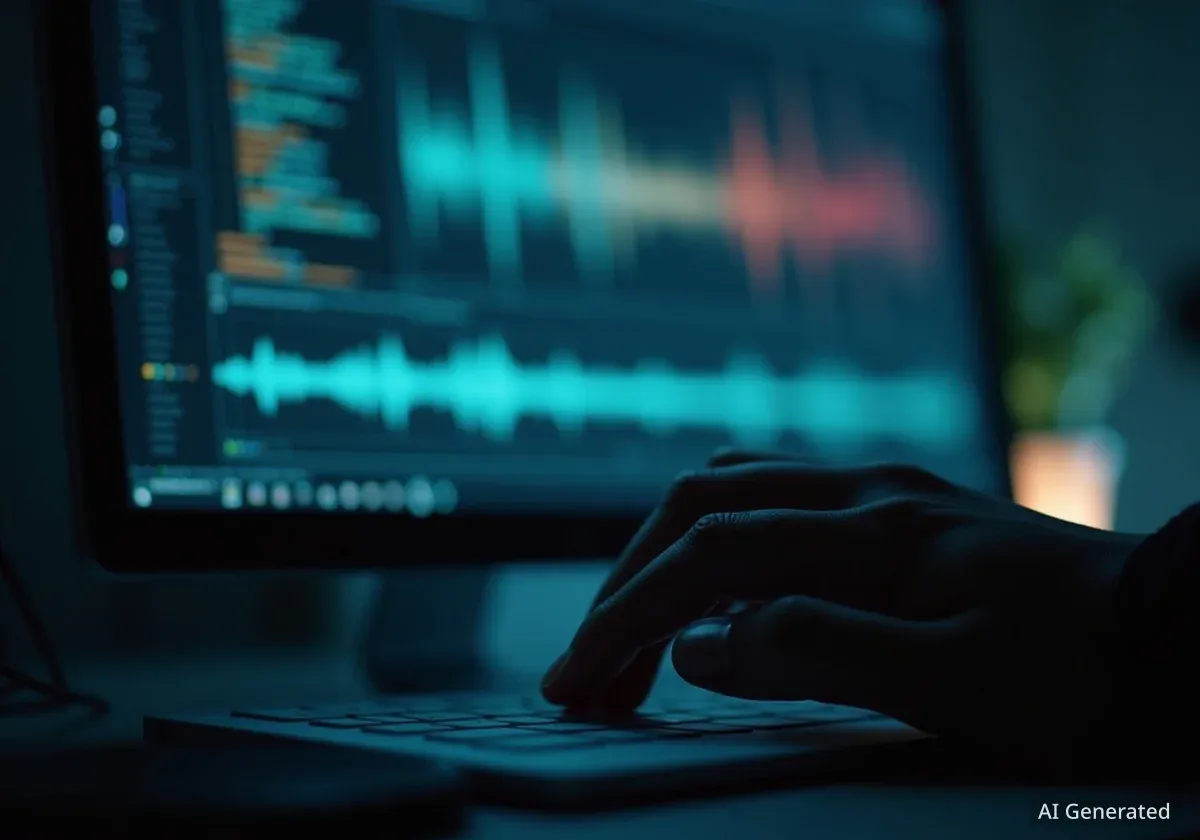Major record labels have intensified their legal action against the artificial intelligence music startup Suno. An updated lawsuit alleges the company illegally copied songs from YouTube to train its generative AI models, a practice commonly known as "stream ripping."
The amended complaint, filed by the Recording Industry Association of America (RIAA), claims Suno deliberately bypassed technological safeguards on YouTube to acquire copyrighted material without permission. This action introduces a new dimension to the case, focusing on the method of data acquisition rather than just its use.
Key Takeaways
- The RIAA, representing major labels like Universal, Sony, and Warner, has amended its lawsuit against AI music generator Suno.
- The new allegations claim Suno used illegally obtained music from YouTube to train its AI models.
- Suno is accused of violating the Digital Millennium Copyright Act (DMCA) by circumventing YouTube's encryption technology.
- The record labels are seeking damages of up to $150,000 per infringed work and additional penalties for each act of technological circumvention.
New Allegations Focus on Data Sourcing
The lawsuit against Suno has been updated with specific claims about how the AI company allegedly sourced its training data. The complaint, filed on September 19th, accuses Suno of engaging in mass-scale copyright infringement by systematically downloading audio from YouTube.
According to the filing, Suno employed specialized code to "access, extract, copy, and download" a vast library of copyrighted sound recordings. This process allegedly involved turning streaming content into permanent downloadable files, a method often referred to as stream ripping.
Circumventing Technical Protections
A central part of the new claim is that Suno violated YouTube’s terms of service by bypassing the platform's security measures. The lawsuit specifically mentions YouTube's "rolling cipher" encryption, a technology designed to prevent the unauthorized downloading of content.
By circumventing this protection, the RIAA argues that Suno not only infringed on copyrights but also violated federal law designed to protect digital works. The complaint states this circumvention "has facilitated Suno’s ongoing and mass-scale infringement."
What is the Digital Millennium Copyright Act (DMCA)?
The DMCA is a United States copyright law that criminalizes the production and dissemination of technology, devices, or services intended to circumvent measures that control access to copyrighted works. Section 1201 of the act specifically makes it illegal to bypass a technological measure that controls access to a protected work.
The Legal Framework: DMCA vs. Fair Use
The updated allegations significantly alter the legal landscape of the case. Previously, a key defense for AI companies like Suno has been the doctrine of "fair use," which permits the limited use of copyrighted material without permission for purposes such as research and transformation.
However, the new claims focus on the legality of how the data was obtained. By accusing Suno of violating the DMCA's anti-circumvention provisions, the RIAA is building an argument that the training data itself was acquired illegally. This could potentially weaken or invalidate a fair use defense, as the doctrine typically does not protect activities that begin with an unlawful act.
Section 1201 of the DMCA states that “no person shall circumvent a technological measure that effectively controls access to a work protected under this title.”
This provision was originally intended to stop digital piracy but is now being applied to the emerging field of AI development. While there are some exceptions to this rule, none currently exist specifically for the purpose of training artificial intelligence models.
Suno's Position and Industry Context
Suno has not publicly disclosed the specific sources or methods used to build its training datasets. The company has previously suggested that its use of copyrighted materials for training falls under the protection of fair use, an argument that has seen some success in court but lacks a definitive legal consensus across the industry.
The RIAA's new claims appear to be bolstered by external research. The complaint references findings from the ICMP, an international music publishers group, which suggested Suno may have illegally sourced data from YouTube. This external research adds weight to the record labels' allegations.
A Growing Trend in AI Litigation
This case mirrors other legal challenges in the AI industry. For example, a lawsuit against the AI company Anthropic involved similar allegations of using pirated books to train its models. While that case is currently on hold, it highlights a growing legal strategy among rights holders: challenging the provenance of AI training data.
Significant Financial Penalties at Stake
The financial implications for Suno are substantial if the court sides with the record labels. The RIAA is seeking significant statutory damages for the alleged infringements.
The requested damages include:
- Up to $150,000 for each copyrighted work that was infringed.
- An additional $2,500 for each act of circumvention under the DMCA.
Given the vast number of songs potentially used to train the AI, the total damages could reach a figure that poses a serious threat to the company's future. The outcome of this lawsuit will likely have far-reaching consequences for the entire generative AI music industry, setting a critical precedent for how AI models can be legally trained.





